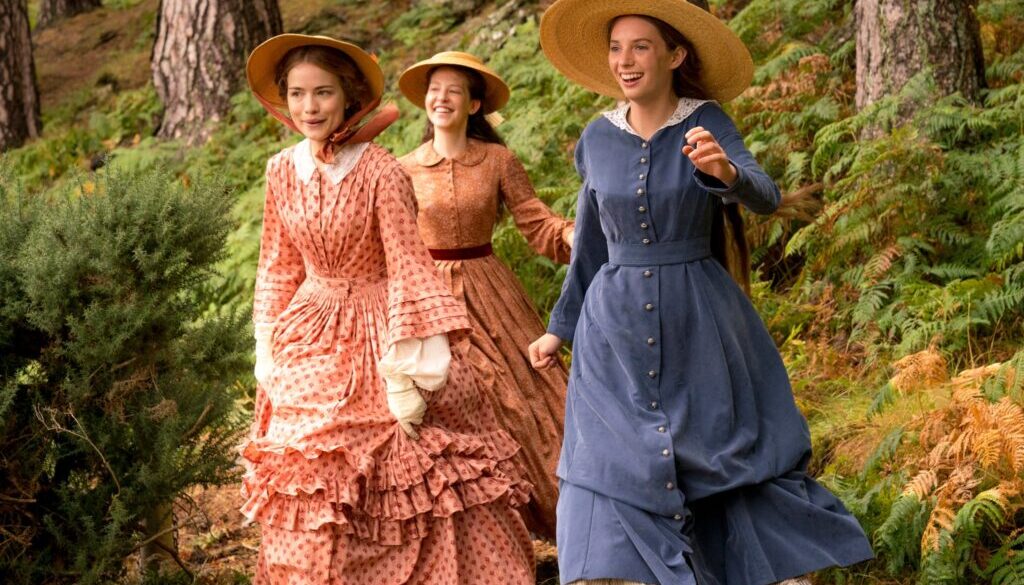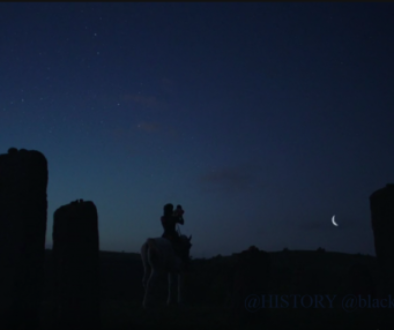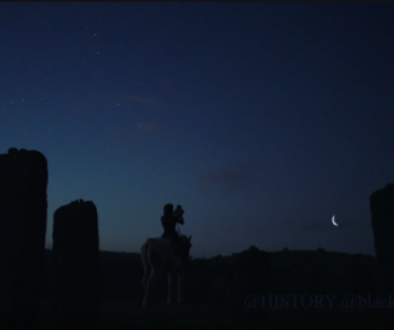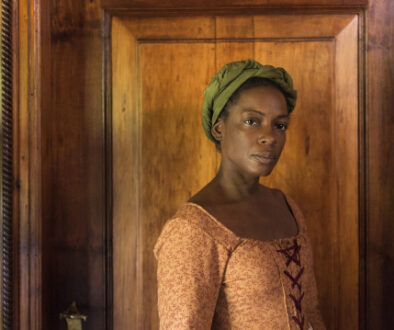PBS/BBC’s Little Women Is An Aggressively Millennial Period Drama
Note: This review was originally published in May 2018 for TVAfterDark, which was disbanded and deleted for reasons outside of my own control. I am re-publishing this review as it is now relevant again for an upcoming article. Low-resolution pictures and dead links to social media/websites have been removed.
A Fresh Retelling of a Timeless Classic
PBS, working with the BBC, turned Louisa May Alcott’s classic novel Little Women into a three-episode television miniseries. The journey of the March sisters through adolescence has appeared on movie screens in 1994 (Winona Ryder and Susan Sarandon), 1949 (June Allyson and Elizabeth Taylor), and 1933 (Katharine Hepburn). The three-part miniseries uses the extended time wisely to bring out the stories of all of the sisters, not just Jo. In keeping with the original novel, each episode is a string of vignettes that form an overall picture of the transformation from childhood to maturity.
After seeing so many negative reviews and fan comments on Twitter immediately after the premiere based solely on elitism, ageism, and nostalgia, there is a need to defend this adaptation of Little Women. Many critics and viewers are going beyond legitimate arguments about style, acting, and technical factors and are going straight for gatekeeping and the shaming of younger fans who love this miniseries. These arguments are lost on an entire generation of children and young adults who have never seen the previous movie adaptations. It is safe to say there may be girls watching this miniseries before they even read Alcott’s original. Modernity is not an inherently bad thing. Little Women is attempting to appeal to younger fans who love historical dramas. This is a chance for a whole new generation to enjoy the March sisters.
Girl Power In Front Of & Behind The Camera
Millennials are leading the way in discussions of female representation in popular culture. Although period dramas may not be the best platform for intersectional feminism, Little Women as a production brings multiple generations of women together to spotlight the feelings of Civil War-era teenagers. Jo March (Maya Hawke), Amy March (Kathryn Newton), Meg March (Willa Fitzgerald), and Beth March (Annes Elwy) are the heart of the story. These newcomers are keeping the audience invested, despite most people’s prior knowledge of the story. Aunt March (Angela Lansbury) and Marmee (Emily Watson) bring a one-two punch of gravitas as the elder stateswomen of the story.
“I think it was amazing to get to be looking at the lives and the growth of these women through the lens of a female perspective, which is something that, you know, oftentimes isn’t the case. And I think my favorite moment was the email that I received before we got to Ireland, asking me to not shave for the next three weeks and through the production period. Which I think is like, a uniquely, a unique request and one that would’ve only happened under female direction, because there was a desire to show femininity and womanhood in all of its forms.”- Willa Fitzgerald
It is highly appropriate that one of the first novels by an American woman about the experiences of teenage girls and women has a female showrunner for its 2018 television adaptation. Heidi Thomas is an expert at telling the stories of real women. Her work on Call the Midwife on PBS and BBC earns considerable praise from TV critics and feminists on both sides of the Atlantic for spotlighting the lives of working-class women in 1960’s London. Thomas, at the TriBeCa Film Festival, mentioned that female inclusivity is the “milieu” she is used to working in. Director Vanessa Caswill brings Thomas’ script to life by using closeups on the March sisters and their environment as another character in the story. All of these factors combined result in a production that is completely friendly to the Millennial point of view on pop culture.
The joys and the sorrows of sisterly bond haven’t changed from the novels. The dialogue between the sisters has elements of 1860’s slang combined with raw honesty which ensures the spirit of the book survives, despite the necessary cuts for time. Readers in every generation have seen their personalities in at least one March sister. Hawke captures Jo’s tenacity. Fitzgerald effortlessly portrays Meg’s calmness. Newton is a master at showing Amy’s self-yearning. Elwy convinces us she is as shy as Beth. Those traits are timeless. The key to this adaptation is Thomas’s added nuance with the benefit of hindsight, and her knowledge of each March sister previously removed from abridged editions of the novels.
Jo as an aspiring writer at a time when women were expected only to become wives and mothers. She pushes back the hardest against social pressure and the patriarchy She defends her literary pursuits from detractors. She even wishes she was born a boy because there are no limits on education or other pursuits. Her struggle against the patriarchy is a rallying cry to today’s Millennials and Generation Z. Hawke commands attention every time Jo’s temper flares. Her journey to adulthood is the central focus of the novel, but Thomas ensures her siblings also get their fair share of screen time.
Beth’s story overall benefits the most from modernization. She is more than a shy girl. Heidi Thomas, at the TriBeCa Film Festival premiere, explained that she interpreted Beth as a girl with generalized anxiety disorder. At the time Alcott wrote, psychology as a field of study was in its infancy. Elwy brings this out every time Beth stares with fear at the gate leading to Mr. Lawrence’s (Michael Gambon) house. She forces the audience to confront their ableist biases. Later on, Beth faces the fact her health will not improve in a way a modern chronic illness patient would. Although Thomas may not have intended to raise awareness on this issue, the show still connects with the thousands of young women facing mortality due to a wide variety of physical ailments and mental health struggles.
Meg is usually the girl to go with the flow — that is, until Aunt March strongly dissents to her engagement to John (Julian Morris). It is then that she finds the strength to stand up for her love. This scene is relatable For anyone who has had to stand up to bigoted or old-fashioned relatives, even in today’s modern society. Jo pushes back against the patriarchy and girls today have that same fight in similar forms.
Kathryn Newton’s delivery of Amy’s often sly remarks results in a partial rehabilitation of the bad impression many people have of Amy in the novel. Amy is keenly aware that she has upset her sisters with her jealousy. In some ways, Amy may actually be the quintessential stereotype of a Millennial, which is what makes her character so entertaining to watch. Amy’s redemption arc in Episode 3 reminds us that there is always a second chance.
Iconic moments from the novel stir the memories of viewers
There is a common misconception that Millennials always want to burn history down to the ground. Millennials may have new ways of approaching historical narratives, but there is no doubt that they are watching PBS programs because they appreciate history and classic literature. Many young women remember reading Alcott’s novel as children. Some fans on social media even said their mothers read it to them. Even younger viewers who have seen the previous movies are looking for hallmark moments in the story. The key to the success of Little Women is how the cast and crew breathe new life into these iconic scenes.
Episode 1 dives right in with Amy spitefully burning Jo’s manuscript in retaliation for not being invited to the theater. This scene was already a powerful scene in the book, but Thomas takes this to the next level by having Jo slap Amy in retribution. Many people don’t realize this, but “box your ears” is 1860’s slang for a slap. The ice pond accident and the bullying over the pickled limes are crucial moments for Amy’s realizing the darker side of her decisions. Beth’s declining health in Episodes 2 and 3 makes viewers cry in the same way the novels did. Jo refusing Laurie (Jonah Hauer-King) has new urgency in the days where men are angered by the “friend zone”. These large touchstone moments are what define Little Women, and none of them have been significantly altered.
The March sisters have relatable personalities and struggles
Little Women is often the gateway drug to tracking relationships in fiction, and this miniseries gives ‘shippers the joy and the heartbreak they love so much from the novels. For many women, Laurie is their first literary crush, and the feelings from the books come back with a vengeance. The Jo/Laurie “comfortable friend” dynamic is believable because of Hawke and Hauer-King’s‘ chemistry. Professor Bhaer (Mark Stanley) is older than Jo but you can see in a much clearer way why she would fall for him. He supports her writing and treats her as an intellectual equal. Bhaer could easily be a hipster creative writing professor at The New School riding the L train. Despite having disjointed screen time in Episode 3, Amy and Laurie’s relationship confirms why Alcott broke up Jo and Laurie. There’s very subtle foreshadowing starting with the ice pond in Episode 1 which makes Amy’s eventual elopement with Laurie make sense for viewers who are less familiar with the story.
Marmee forces the conversation on women’s anger
Another common misconception many have is that younger women can’t relate to older women. Marmee is beloved across the generations. In fact, there is one specific scene in Episode 1 that seals the deal. After Jo rages about Amy burning the manuscript, Marmee tells Jo the truth about her emotions. Marmee has suppressed her anger and frustrations for 40 years for the sake of being a polite member of society. The battle between women’s emotions and what society expects has not changed between 1862 and today.
I think Marmee’s layers, and her complexity are completely overlooked by the juvenile reader…if you underestimate Marmee or don’t treat her with enough attention to detail or enough respect, you lose a lot of the ballast and a lot of the texture of the novel, so I think not approaching Marmee from the right angle is a real mistake and has perhaps caused problems of the book’s image over the years.” – Heidi Thomas
Show Little Women to the next generation of period drama fans
Society constantly tells women that it is not nice to show anger. Men call women hysterical or over-dramatic in situations when women are genuinely offended or angered by the actions of others. Especially in Alcott’s day, a woman like Marmee trying to assert any sort of power would result in anger because society at the time considered women ill-suited for public life or making their own decisions. We’re mad about everything from predators getting away with sexual harassment to our roommates skipping the dishwasher. Men especially believe women are “hysterical or overreacting in instances where Although there are moments in the modern world when expressing anger isn’t ideal, it was even more of a problem back when married women like Marmee were essentially the property of their husbands. Fans who have seen other adaptations of Little Women have noted on Twitter this moment is not featured. It is a safe bet this scene doesn’t jibe with the overall vision of Marmee’s wholesome nature from the novels. Overall, it says so much about how people today are questioning how society has assigned gender roles to emotions every human has.



